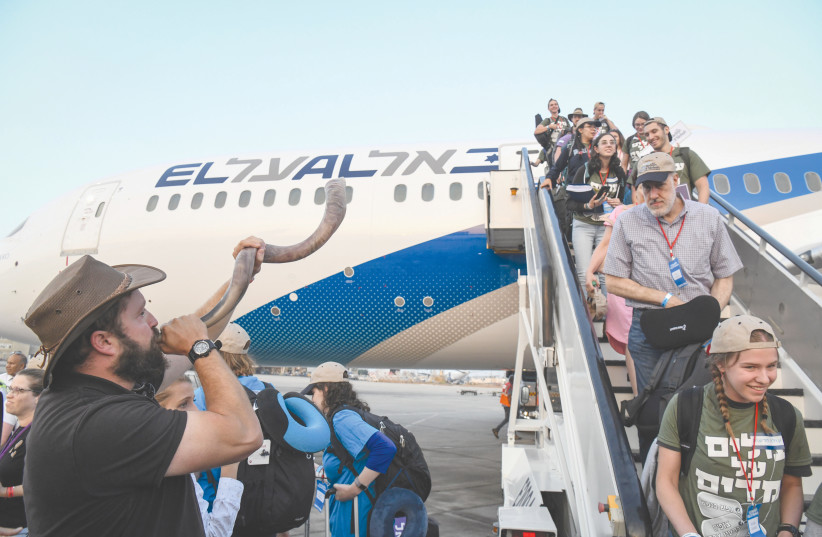Aliyah was served to me on a silver platter. There is no other way to describe it.
When I was 10 years old, growing up in New York, my family paid its first visit to Israel. It was a few years after the Six-Day War. On the final night of our trip, an Israeli relative took us to the Mount of Olives, overlooking the Temple Mount.
 Learn how to buy your home in Israel with confidence
Learn how to buy your home in Israel with confidenceThat’s all my mother needed. The emotional sight, just hours before our return to New York, prompted her to vow that she and my father would make aliyah as soon as my father could retire.
A decade later, my father took early retirement and my parents moved to Israel, a semester before I was finished with college.
After that semester, I joined my parents. Still single, I was spared the search for a place to live in Israel as I took up residence with my parents until I married four years later.

I am a strong advocate of Jews returning to the Jewish homeland. Still, while I’ve made the concession of having a much lower salary than I’m sure I would have earned in the US all these years, I acknowledge that having the family backbone through this entire process – with all my siblings living here, as well – has made the difference.
I understand those whose biggest problem with being a part of this historic ingathering of the exiles has been the inability to fathom splitting up the family. So, they stay behind. I get it. It is beyond me to question it.
I am prompted to write this article now because my wife is currently in the US, visiting her parents after an absence of two years due to the pandemic.
Through the years, I have walked through Jerusalem to get from work to my parents’ home. For so many other people, like my wife, that basic pleasure and commitment to the mitzvah of honoring your parents require a plane trip, taking vacation days, and a large expense.
In my earlier and younger years in Israel, I was more smug about the privilege of living in Israel. When I arrived back in New York to get married and we lived for a period of time in my birthplace, I wrote an article in The Jewish Week, stating that Jewish life was shallow in the Big Apple, even if it is the Jewish capital of the Diaspora.
When we returned to New York one year for Passover, and we refrained from reciting Seder-specific blessings on the second night of the Diaspora observance, my grandmother-in-law asked why we were being different. I retorted, admittedly arrogantly, that we were observing the holiday the way it is specified in the Torah.
But as the years move on, not only have I become older and – perhaps – more mature, our parents have also become older. My father passed away eight years ago. My mother is impaired. But there I am, still walking at the end of a workday from the offices of The Jerusalem Post to see her.
And there’s my wife, taking a corona test and traveling 14 hours and wearing a mask on a plane in order to be able to see her parents.
On the Shabbat when my wife was away, we read the Torah portion that tells of Jacob’s journey out of the homeland, a land that would later be named for him after he is given the name of Israel, the name also given to our modern state. While Jacob was away, he married and nearly all his children were born, continuing the chain and establishing the Children of Israel.
By the end of the weekly portion, Jacob was coming home.
The story is well known. Jacob later suffers a long separation from his son Joseph. The Jews are exiled and enslaved in Egypt. But eventually, they come back as a nation.
It’s been a long time since then. We have our modern state, but we are still separated: children who have moved to the State of Israel are leaving their parents behind, and in other cases, parents are making aliyah and leaving their children behind.
As a spoiled oleh who has always had his immediate family with him through these years of living in Israel, and – thank God – now has children and grandchildren who have been born here, I tip my hat to all those who have been separated from their closest loved ones. WhatsApp and Zoom have made life easier, but as you know better than I do, it’s not the same thing as being there.
There’s nothing like family. There’s no place like home. May all our families come home.
The writer is op-ed editor of The Jerusalem Post.
 Sign up for our newsletter to learn more
Sign up for our newsletter to learn more 